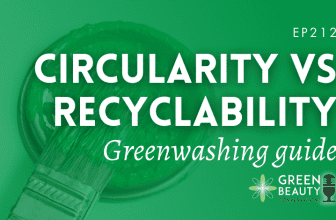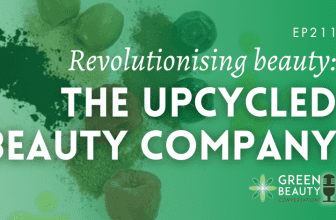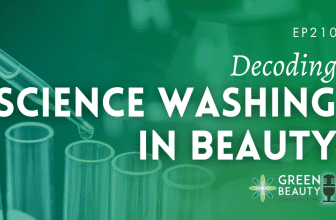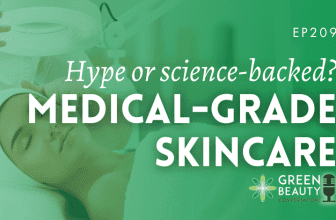
[ad_1]
Embarking on a journey to create your own organic skincare or haircare formulations with the aim of starting an indie beauty brand can be both thrilling and daunting. As the leading online organic cosmetic formulation school, we have witnessed both the dreams and successes of 18,000-plus students based in over 180 countries. From their collective experiences, we have identified common pitfalls and challenges that indie beauty formulators face along the way.
In this blog post, we aim to empower you, whether as a prospective or current student with us, by shedding light on the top 10 mistakes we’ve seen formulators and new indie beauty brand founders make and providing valuable insights on how you can avoid them.
A key theme in our points is the need for you to see failure as an integral part of your learning process. By embracing lessons learned, you can refine your skills to create and sell truly exceptional products.
We cover, for example, the importance of starting with simple formulations, ensuring the correct usage and application of natural ingredients, and the significance of thorough testing to ensure product safety and efficacy. Apart from formulation, our top 10 also includes some key mistakes we see indie founders make in starting their beauty businesses.
Read on and let the collective experiences of our community guide you with invaluable tips and advice to help you avoid and overcome these challenges and build a thriving organic skincare or haircare brand.
Learn from the shared experience of @FormulaBotanica students and graduates and avoid the top 10 mistakes indie formulators and beauty founders make. #indiebeauty #learntoformulate #beautyfounder Click To Tweet
Top 10 mistakes formulators make
1. Fear of failure
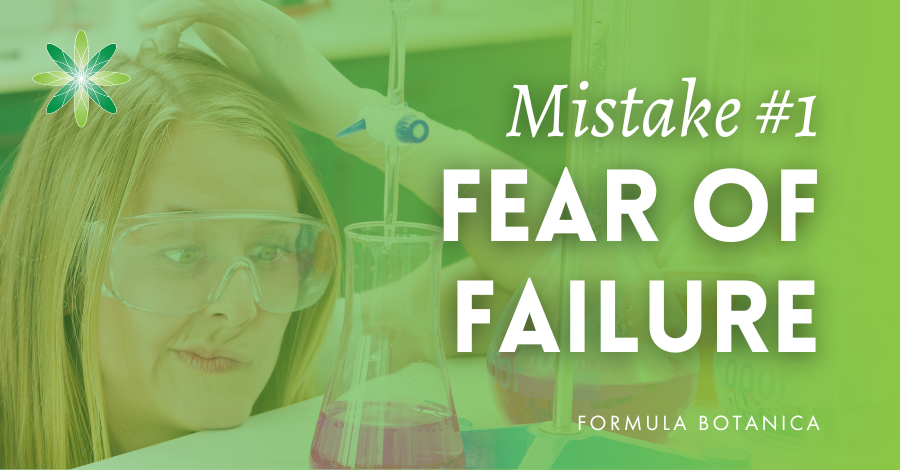
One of the most common mistakes formulators make is succumbing to the fear of failure. Designing and formulating beauty products is a journey that requires time and a willingness to embrace trial and error. It is crucial to understand that failed formulations are an inherent part of the development process, and each failure presents an opportunity for valuable learning.
To overcome this fear, it is essential to cultivate the habit of taking comprehensive notes from the very beginning of your formulation career. Failed formulations should not be discarded; instead, they should be studied and analysed. Record not only the percentage formulation, but also detailed observations on aspects such as stability over time, colour, scent, and the product’s feel on the skin upon application. Your formulation journal, whether in physical or digital form, will become your trusted companion as you navigate the world of formulation.
Remember the words Thomas Edison is reputed to have said when he finally invented the light bulb: “I have not failed 1,000 times, but discovered 1,000 ways not to make a light bulb”. Stay focused, remain undeterred by setbacks, and embrace failure as a stepping stone that brings you closer to achieving your dreams.
2. Trying to run before you can walk

A common pitfall for new formulators is the eagerness to achieve rapid results, often attempting to launch a successful brand shortly after starting their formulation journey. While having a clear end goal is important, and wanting to get going is only natural, it is crucial to start at the beginning and build a solid foundation of knowledge and skills. Remember, master chefs were once sous chefs learning the ropes. And the same applies to formulation.
At Formula Botanica, we have seen graduates, who already had brands before enrolling in our courses, crediting their studies with us in helping them establish stronger businesses rooted in a formal understanding of professional cosmetic formulation. It is essential to learn how to formulate simple products first, as even they can go awry at times.
For instance, formulating with shea butter to make simple anhydrous cosmetics can have its issues. Rushing to include high-performance, and often more expensive ingredients without a solid understanding of their compatibility and formulation requirements can lead to failures and be a costly exercise too.
Take the time to get to know your ingredients and their compatibility with one another. A category of ingredients like emulsifiers is a world of its own as each emulsifier has its uses, pros and cons, unique skin feel and so on. By acquiring a strong grasp of the basic skills and knowledge, you lay the groundwork for future success and reduce the risk of costly mistakes. Slow down, embrace the learning process, and allow yourself the opportunity to master the essentials before venturing into more advanced formulations.
3. Incorrect use of ingredients
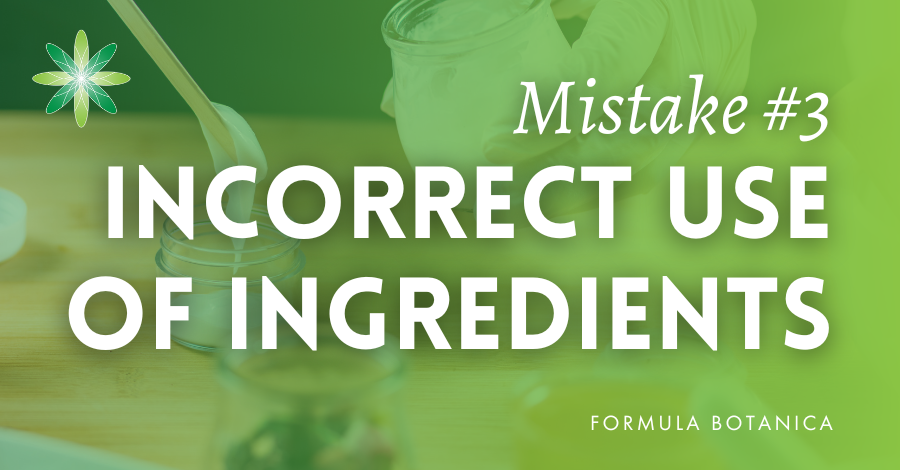
With the rise of self-taught artisan formulators on social media platforms, there is a wealth of information available online. However, it is wise to be cautious and check the accuracy and reliability of the sources. Relying on informal information that lacks professional backing can lead to unwise or even potentially dangerous decisions regarding ingredient usage.
A common error is thinking that because a botanical ingredient is said to have certain chemical compounds that they will automatically be rendered up in your formulation. You need to know some basics about the composition and especially the solubility of compounds in your chosen ingredient. Water-soluble or hydrophilic compounds would be of little use in a totally anhydrous product, but are likely to work well in water-containing products such as emulsions, cleansers and micellar waters. You need to grasp the importance of researching your ingredients in detail to make the most of their skin- or hair-beneficial compounds.
Another example of misinformation lies in the inccorrect usage of specific ingredient. Some online sources suggest using rose absolute at high amounts over 1% in a formulation or give measurements for including it in drops. This disregards the fact that rose absolute contains methyl eugenol, a regulated carcinogen. It is crucial to dedicate time to learn about all your ingredients, not just essential oils of course, and understand how to interpret their safety data sheets so you know how to handle and include them in your formulations at, for example, the correct percentages and within the recommended pH levels for them to be used safely and effectively.
How to research cosmetic ingredients for organic skincare
How to read safety data sheets
4. Insufficient use of testing
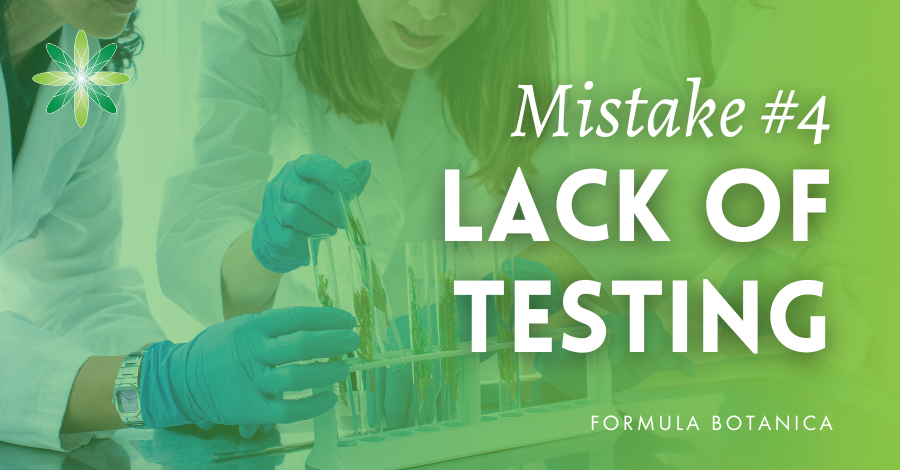
Some people only get around to cosmetic testing once they have a product ready to sell, only to find it fails costly lab tests. Formula Botanica offers certificates in natural cosmetics preservation and natural cosmetics stability testing that show you how to do tests in your home lab so you can proceed to third-party professional testing confident your formulations are sound and likely to pass.
While the creative side of formulating your own natural products is enticing, testing is an essential component that you should include in your formulating routine from the very early stages of learning. Testing is not only a requirement for cosmetic products intended for sale in the EU, UK, and many other jurisdictions worldwide, but is also crucial to ensure the safety and efficacy of your formulations for the end user.
Microbial testing for water-containing formulations is essential to determine if the chosen preservative can effectively withstand the desired product shelf life. As an indie beauty formulator, you need to take responsibility for testing; stability testing is a must for all products. Anhydrous products may still come into contact with water or be used in damp or humid conditions and so still need a preservative system. And regardless of the type of product, regular stability testing on batches should be a core aspect of your home lab set up.
3 reasons all skincare formulations must undergo stability testing
4 steps for testing your cosmetic emulsions
Everything you wanted to know about natural preservatives
5. Ingredients with no supplier data
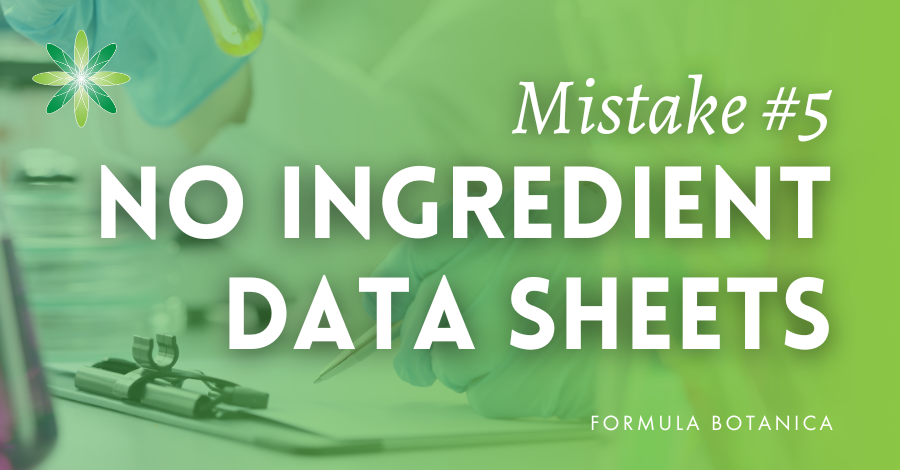
One common mistake we see time and again is a failure for our students to thoroughly inquire about and obtain adequate data from their ingredient suppliers. This often leaves them without the necessary data sheets and certificates of analysis, which are not only required to complete their final formulation projects, but also essential for taking a product to market. Third-party safety assessors will require this documentation when evaluating the safety of your cosmetics and conducting microbial and stability tests. However, even before reaching the testing stage, this documentation plays a crucial role in understanding your ingredients.
Technical data, such as the safe working pH range of an ingredient can vary from batch to batch, making it vital to have access to this information. Safety Data Sheets (SDS) are not only necessary for selling your products, but also serve as a valuable resource for handling and storing the ingredient and for understanding any sensitisers it contains.
Certificates of analysis provide assurance that each batch meets quality standards. They contain vital information such as the INCI name, included preservatives, and detailed statements about the inherent characteristics of the ingredient, including its appearance, scent, melting point, density, specific gravity, bioactivity in the environment, safe disposal methods, and shipping instructions.
Don’t be afraid to ask your suppliers for this information, as it is crucial for the formulation process. Don’t assume that suppliers will automatically provide the necessary data; take the initiative to reach out and request the required documentation. Even as artisan formulators we need this information to ensure the safety, efficacy, and quality of our formulations.
6. Failure to document formulations
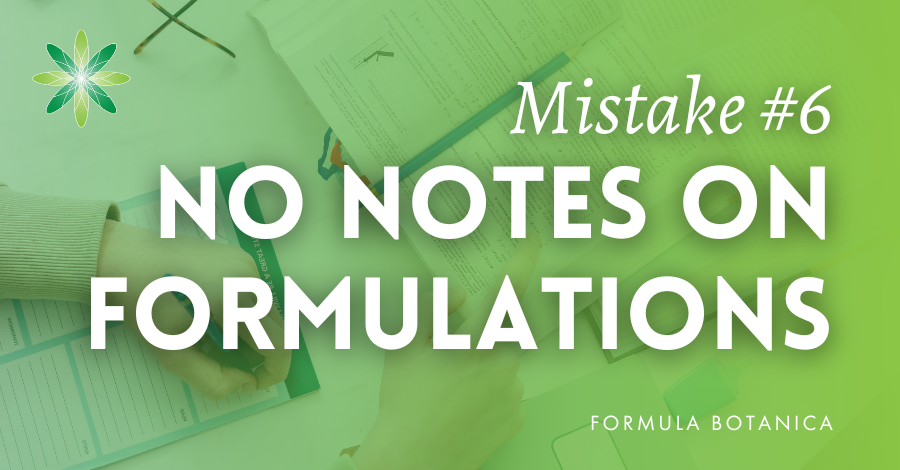
We can’t stress enough how critical it is to keeping comprehensive formulation notes. However, it is a practice we’ve seen many formulators overlook. You need of course to document the ingredients – with their common and INCI names – and percentages used in a formulation and the date and batch. But, in addition, you need to record detailed observations about your formulations’ performance, texture, stability over time, and other relevant factors. Without these notes, it becomes challenging to conduct further trials, compare different batches, and identify the key factors contributing to the success or failure of a formulation.
Documenting formulation trials allows you to analyse and understand the variables that may impact the final product. Recording the time, date, temperature, and any other relevant variables ensures you have a comprehensive record to refer back to when evaluating different batches.
Formulation notes give you a valuable reference for troubleshooting and problem-solving. If a batch fails or does not meet the desired results, having detailed documentation allows you to trace back your steps, identify potential mistakes or discrepancies, and make the necessary adjustments for improvement. It is through this process of continuous learning and analysis that you, as a trained formulator, can refine your skills, gain expert knowledge, improve your formulations and achieve consistent and successful results.
7. Designing formulations before building a brand
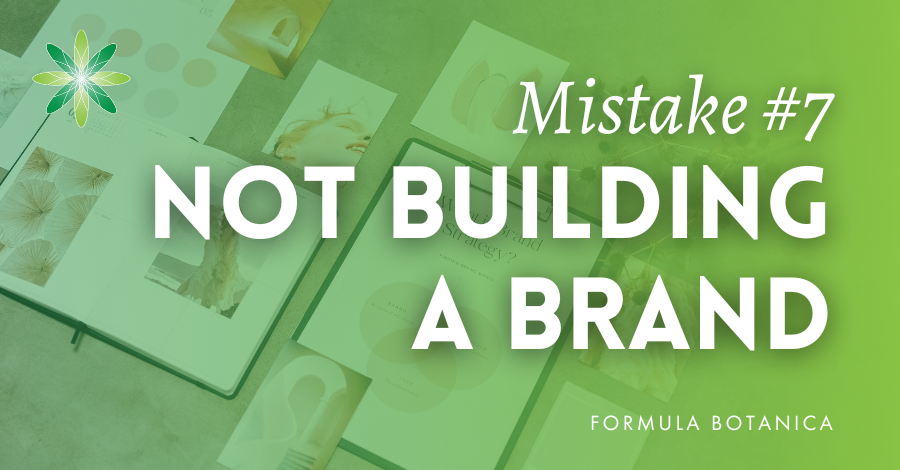
You’ve come up with some wonderful formulations that you want to sell. But have you thought of the brand to sell them under? As both formulator and potential indie beauty brand founder, you wear two hats, which can be hard to juggle especially if you have no background in marketing, branding or business. If you aspire to starting a beauty brand, then it’s never too early to start developing a brand and thinking about brand identity while, if not before, you finish formulating your launch products.
Building a brand requires thoughtful consideration of the brand’s unique selling proposition, target market demographics, and consumer preferences. You will need to conduct market research to identify gaps, trends, and consumer demand for your products. This research helps to ensure that your formulated products align with market needs and have the potential for commercial success. It will also help guide your brand mission and ethos as well as its design.
A strong brand foundation sets the stage for effective marketing, customer engagement, and long-term business growth in the competitive indie beauty industry. We have several other blog posts that dive into branding your beauty business, so do head over to read these:
Podcast 91: Nopalera – the brand mission of indie founder Sandra Velasquez.
Podcast 107: Naughty Alchemist – graduate and indie brand story.
Podcast 15: Top 10 beauty branding tips
10 ideas to inspire your cosmetic formulations (and brand mission)
8. Fear of being visible as an indie founder
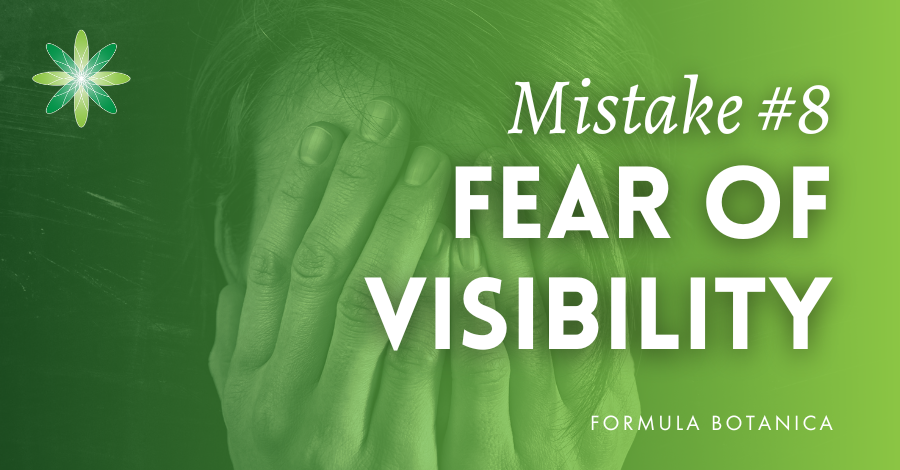
Indie formulators often find themselves more comfortable being immersed in the creative process of formulating than taking on the role of a visible brand founder. However, if this sounds like you, then you need to know that it is essential for you to overcome this fear of being visible and embrace the role of proud formulator and founder of your brand.
Building a successful beauty business requires being at the forefront, actively promoting and pushing your brand out into the world. Believe us when we say that in time, it does become easier showing up online, doing “lives” with your community and generally feeling more at ease in your founder (not just formulator) role.
Being visible as a brand founder has numerous benefits. Firstly, people have a natural inclination to connect with and buy from other people. By putting yourself out there, you can establish a personal connection with your audience, and build trust and loyalty. This personal touch allows you to engage directly with potential customers, understand their skincare needs, and provide tailored advice on how your products can address their concerns.
This visibility also helps foster a community around your brand. By actively engaging with your audience you create a sense of belonging and authenticity. This community-building aspect contributes to your brand’s success by cultivating a loyal customer base that not only purchases products, but also becomes advocates and ambassadors for the brand.
As an indie formulator, you can leverage your personal story, passion, and expertise to create a strong and relatable brand identity. Embracing your role as the face of their brand allows you to establish meaningful connections, foster a supportive community, and ultimately drive the growth and success of your beauty business. Don’t just take our word for it, listen to our interviews with Naz Bashir, founder of Solo Skin London, and Roshanne Dorsett of The Glowcery who both explain how they fostered a community and customers by overcoming their fear of being visible.
Podcast 127: From indie beauty idea to selling 500 face creams
Podcast 157: From bootstrapping to award-winning beauty brand
9. Lack of beauty business experience
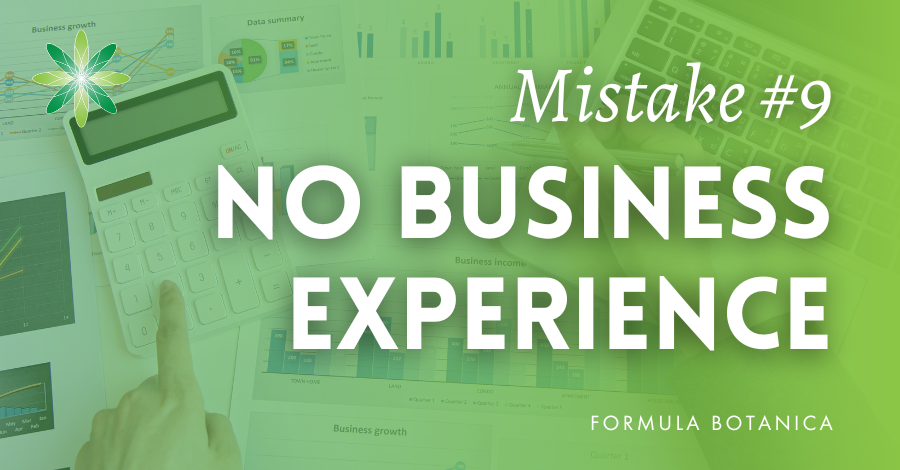
While you may love, prefer and excel in creating beautiful and effective products, running an indie beauty business requires a completely different set of skills. Formulating products is just one aspect of the broader beauty industry, which involves branding, manufacturing, marketing, sales, finance, and more. If you are planning on creating a business with your formulations, don’t panic, but do some planning. Here are some tips on how to go about this.
First, you need to familiarise yourself with various aspects of the industry, including market trends, consumer preferences, regulatory requirements, distribution channels, and competitive landscape. We have many blog posts on this site to help. Take a look at:
Beauty business resources for indie formulators and founders
How to write a beauty product business plan
Budget-friendly strategies for start a beauty business
How much does it cost to start a beauty business
How to start a beauty brand on a small budget
To bridge this gap in knowledge and acquire the necessary business skills, we advise getting some professional education and training specifically tailored for the indie beauty industry. Programs like Formula Botanica’s Diploma course in Beauty Brand Business Management offer comprehensive training on all aspects of running an indie beauty business. It gives you valuable insights as well as practical strategies and checklists on how to go about branding, manufacturing, social media marketing, budgeting, finance, and more. By gaining a thorough understanding of the beauty business, you can transition from formulator to beauty brand founder with enhanced entrepreneurial abilities to set a solid foundation for your brand’s success.
We have seen our graduates do just this and complement their formulation skills with new-found and learned business knowledge and acumen. See our graduate gallery for their stories, and be inspired by the sheer number of their brands that have gone on to win industry awards.
10. Not having an end goal in mind
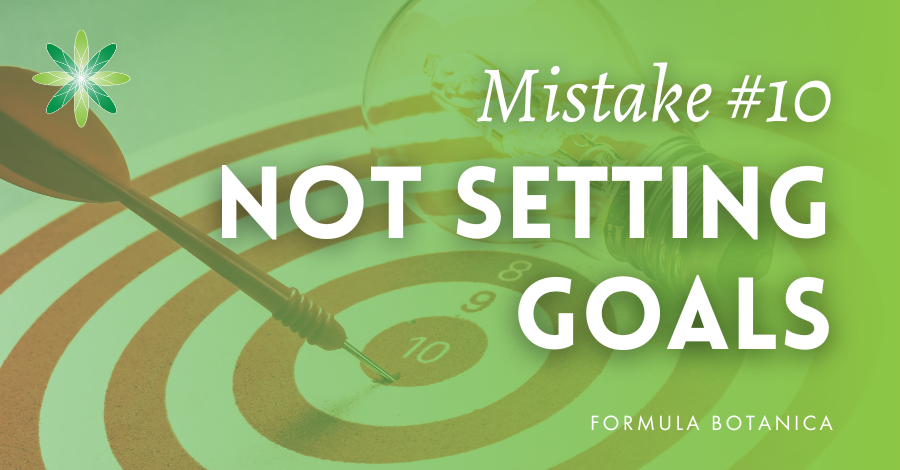
Having a clear end goal in mind is crucial as you set out on your beauty business journey. Without a defined vision, it becomes challenging to set meaningful objectives, make strategic decisions, and stay motivated throughout the process. Envisioning where you want your formulating skills and indie beauty business to take you provides a guiding light that shapes your plans, actions, and aspirations.
Whether your dream is to create a side hustle, sell at farmers’ markets, become a global skincare brand, establish a sustainable and ethical business, or become respected as an indie beauty resource on social media, having a clear vision helps you set targets, track progress, and make informed choices along the way.
An end goal provides a source of motivation and inspiration and acts as a driving force especially when things get tough; it reminds you of the bigger picture and the purpose behind your efforts. It empowers you to overcome obstacles, adapt to changes, and stay focused on your long-term vision. By continuously working towards your dream, you can build a sense of fulfillment, accomplishment, and satisfaction as you witness your progress and growth.
While the specific details of your end goal may evolve over time as you gain experience and refine your vision, having an initial dream to work towards is essential. By envisioning your end goal, you can shape your formulating skills and/or your indie beauty business in a way that aligns with your personal aspirations, creating a fulfilling and purpose-driven life and business journey.
We hope this list has helped give you the insights to avoid the top mistakes formulators make. Give it a few reads, bookmark it, and remind yourself of your end goal, and you will be on a better footing to create the formulations and build the indie beauty business you dream of and deserve.
FREE FOUNDATION COURSE
How to become an
Organic Skincare Formulator
FREE TRAINING
How to become an
Organic Skincare Entrepreneur
Join over 100,000 other Formulators
FREE TRAINING
How to become an
Organic Skincare Entrepreneur
Join over 100,000 other Formulators
Leave us a comment

Liz is Formula Botanica’s Content Coordinator and joined our team in August 2020. Liz worked as a professional blogger, journalist and site developer for many years and was also part of the Formula Botanica student community. Read more about the Formula Botanica Team.
[ad_2]
Source link


